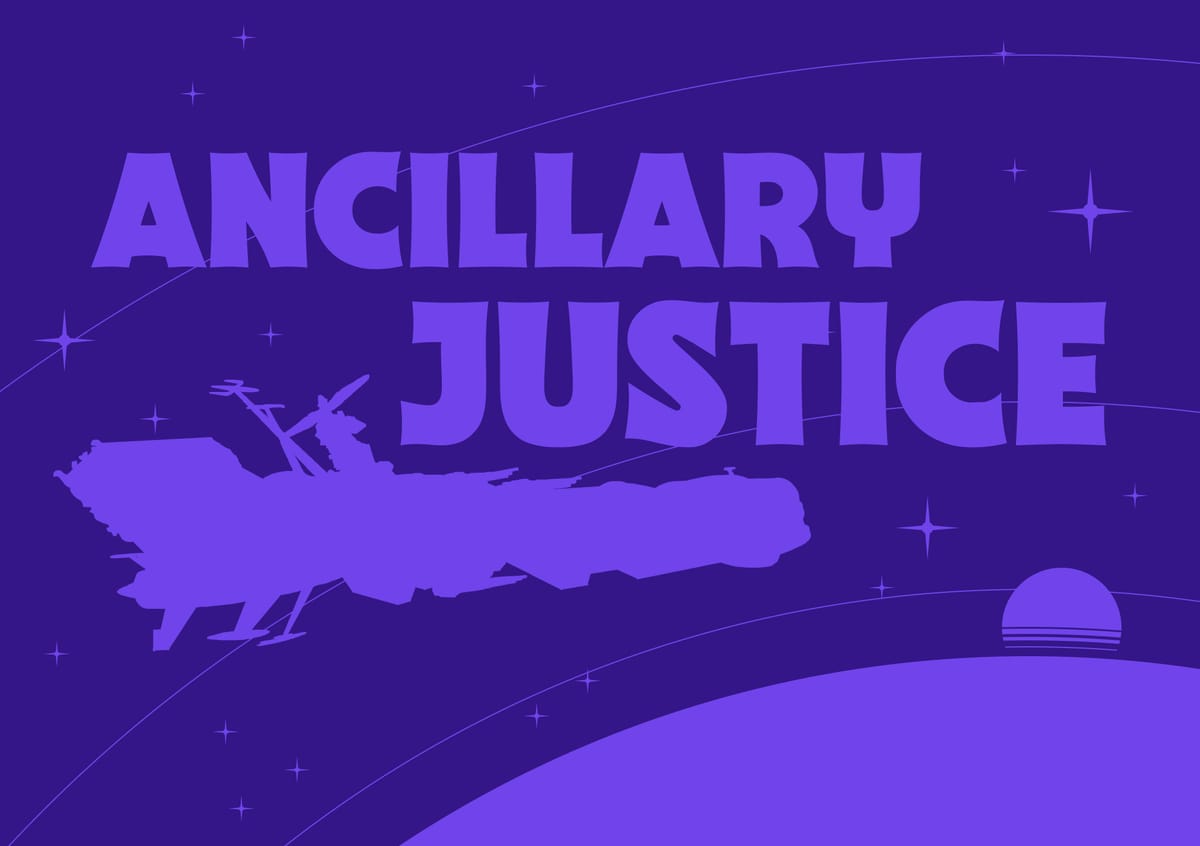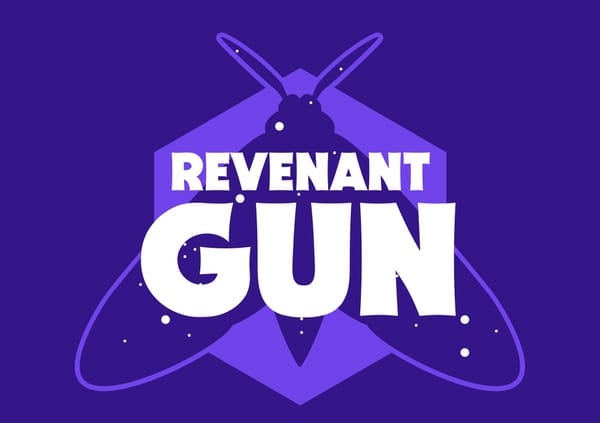Ancillary Mercy by Ann Leckie
My thoughts on the Imperial Radch's (im)perfect ending.

This review focuses mainly on my thoughts about the ending of Ancillary Mercy, and as such, the ending of the Imperial Radch trilogy as a whole. It contains spoilers for the entire trilogy and I only encourage you to read it if you’ve read all three books.
If you haven’t read all (or any) of the Imperial Radch books yet, you can check out my reviews of Ancillary Justice and Ancillary Sword (I highly recommend that you try them; they are fantastic). You can find my reviews here:


Now, without further ado…
The ending, in brief
In the final pages of Ancillary Mercy, when the conflict that has been brewing for the last two books finally comes to a boil with Breq and Anaander Mianai facing off against each other, Breq says something that completely derails the narrative and introduces a baffling alternative to the resolution we have been waiting for.
In short, and in the presence of the Presger Translator Dlique, Breq submits that AIs are—mainly due to their association with humans—a Significant species.
The review
For me, this ending came out of nowhere.
That is not to say that it is unsupported. In fact, it may be said that it was heavily foreshadowed with Significance being discussed several times throughout the series and humans themselves becoming Significant via their association with the Geck, another alien species. Additionally, we see that the Presger have quite a different understanding of certain concepts and that they have no problem with seeing AIs as a species.
And when you put it like that, well, this ending is actually perfect.
But no. What I’m trying to say is, this was not the conflict resolution I was expecting. Or rather, this was not the resolution to the conflict I was expecting to be resolved. And for me, it is entirely a matter of expectations.
You see, my expectations were that the core of the story was the conflict within the Radch or rather the internal conflict within Anaander Mianai. And as such, I thought that the resolution of the series was also going to be the resolution of that conflict.
As the book progressed, it slowly dawned on me that this was not going to happen, or at least not in a satisfying way. The plot had to move much faster and more things needed to happen for something as huge as that to be resolved. And the book simply did not move that fast, which was frustrating.
The way I saw it, the first book represented a large-scale introduction to the problem—there were years and years of history, backstory and concepts that kick-started the war within the Radch.
The second book then slowed down a little and decided to instead present us with the Radch in the microcosmic sense. We learned what life is like in the Radch, and we spent some quality time with our beloved characters.
The third book, I suspected, would pick up the pace and lead to an epic finale.
And yet it didn’t.
Ancillary Mercy continued with the same laid-back tempo of Ancillary Sword, with characters simply taking one step at a time and seemingly not wanting to step out of the perceived comfort zone of the Athoek system. Instead, the conflict, and the Lord of the Radch, had to come to them.
And when I read the scene where Breq and Anaander Mianai finally face off against each other in what I expected to be an epic showdown, it went something like this, with Breq saying…
“That being the case, there’s no question in my mind that we AIs are not only a separate species from humans, but also Significant.”
[…]
“Ridiculous!” scoffed Anaander.
“Ridiculous!” scoff I.
“Purely ridiculous. This a conflict spanning an entire galactic empire,” I said to an imaginary Ann Leckie sitting right beside me. “These are billions of lives at stake and you are completely ignoring the fact that this is a conflict within Anaander Mianai. You can’t get out of this so easily… Can you?”
And the more I thought about it, the more it started to look like… maybe she can?
Because it makes sense. It makes sense that you cannot compress an entire galactic civil war into three relatively short volumes. It makes sense that the characters can find an ending outside of the conflict that is more meaningful to them. And it makes sense to preserve the magic and mystery of Mianai.
Yet the fact remains that the greatest conflict presented in the Imperial Radch trilogy is resolved by, well, avoiding the resolution. And although that is done brilliantly, I can’t help but wonder: Is this the perfect ending, or just a cheap cop-out?
Which leads me to the main conflict. The real conflict. The conflict—reflecting the one within Anaander Mianai—within me. On one hand, I feel like there are implicit promises that have not been fulfilled. On the other hand, the more I think about it, the more fitting the ending we did get feels.
The conclusion
Unlike Anaander Mianai, I did resolve my own internal conflict. Although it took me quite some time—and writing this review—to come to terms with it, I believe that the ending we did get—though unexpected—is the most perfect ending for the series.
Paradoxically, this ending also allows Leckie to open up her world to a lot more stories in the future, which I fervently hope she will do, with stories about alien civilisations, interstellar conflicts, and, most importantly to me, the Imperial Radch.






